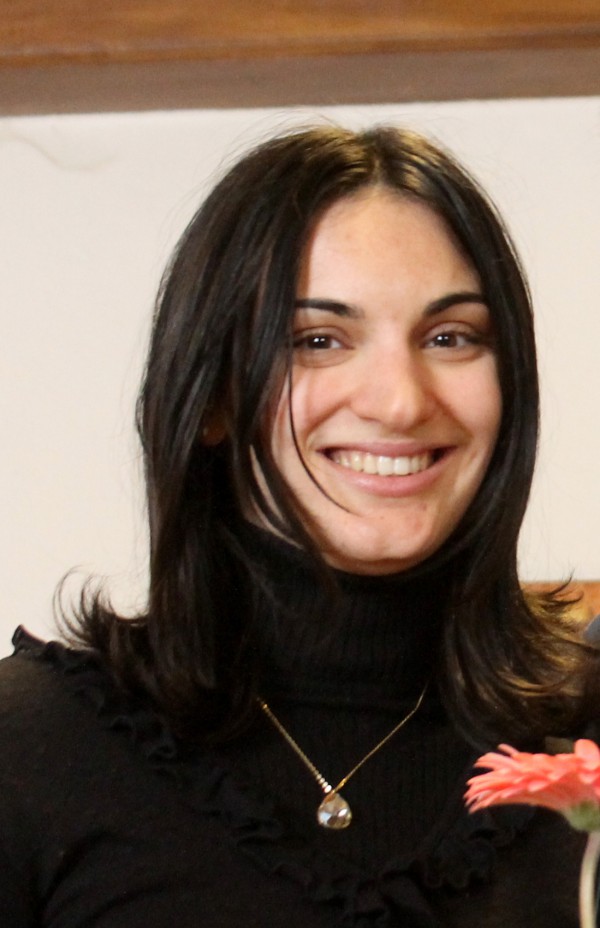Tiziana Musso
Interview by Carey Sargent, EPFL, NCCR MARVEL
The biggest challenge that women scientists face is...
I think it’s quite different for women. First of all because there are fewer women and because there are not as many in positions of power such as professors. And then there are of course differences from a physical point of view—we have babies and every month there are hormonal changes meaning we suffer more physically. Men always have the same status. Proper maternity and paternity leaves like in the north of Europe would help women to remain in the work-force even after having had a baby.

I chose a scientific career because...
I always liked science since I was a child, but I think that I really decided to get a career and study physics because of my high school teacher. She was really good and she stimulated our curiosity, and so because of that I decided to study physical engineering, I was really inspired.
My advice for younger women interested in pursuing a scientific career is…
I think for us it’s more important to be brave. I think that’s the biggest challenge, that we might be less confident than men. It’s important to be brave and to believe in yourself, but I guess the most important thing is to find what best suits you best, and also take some time to figure it out. In science there are many possibilities and it’s very important to enjoy what you’re doing.
If I weren’t a scientist, I would be…
After high school I wasn’t sure whether to study physical engineering or philosophy. I wasn’t the sort of person who really loves math and hates everything else, I always really enjoyed literature and all of the humanities as well and so I could have done something like that, such as philosophy or even theology would have been interesting. I still read books, mainly about the philosophy of science and so I put the two things together. I think it might have been more difficult to find a job if I had studied philosophy.
My greatest MARVEL discovery to date…
Thanks to MARVEL and my job here at University of Zurich I’ve been carrying out atomistic computer simulations to model experimental data, so I’m really collaborating with experimentalists and I find it really interesting to be able to explain their results. I really like this project because it puts two different sides of science together.
My top two papers…
One paper which I really like and am proud of scientifically is one about graphene fluoride. It is work I did in my PhD in collaboration with MIT and I really like it because it was quite important from a fundamental point of view. Basically we used buffer layers to improve the transport in p-type transistors based on 2D metal dichalcogenide monolayers.
Another paper, which I didn’t write and really like is an ACS Nano paper, it’s called “A Conversation with Prof. Mildred Dresselhaus: A Career in Carbon Nanomaterials”. I remember personally meeting her at a conference in the U.S. She was a really humble lady and I was impressed because she was quite old but still came to conferences and then I found this paper and found out that she’s an American physicist, that she got her PhD in 1958 and I think she’s a really good example. In this paper it said that in high school her guidance counselor told her that women usually do three things, which are teaching at school, being a secretary or being a nurse. I think that was quite indicative of the mentality at the time.
